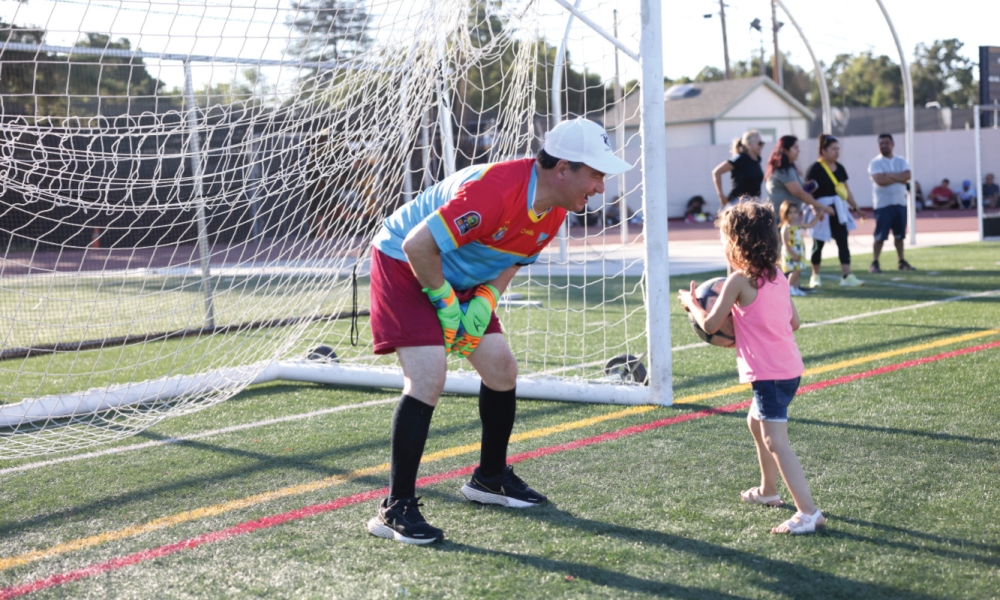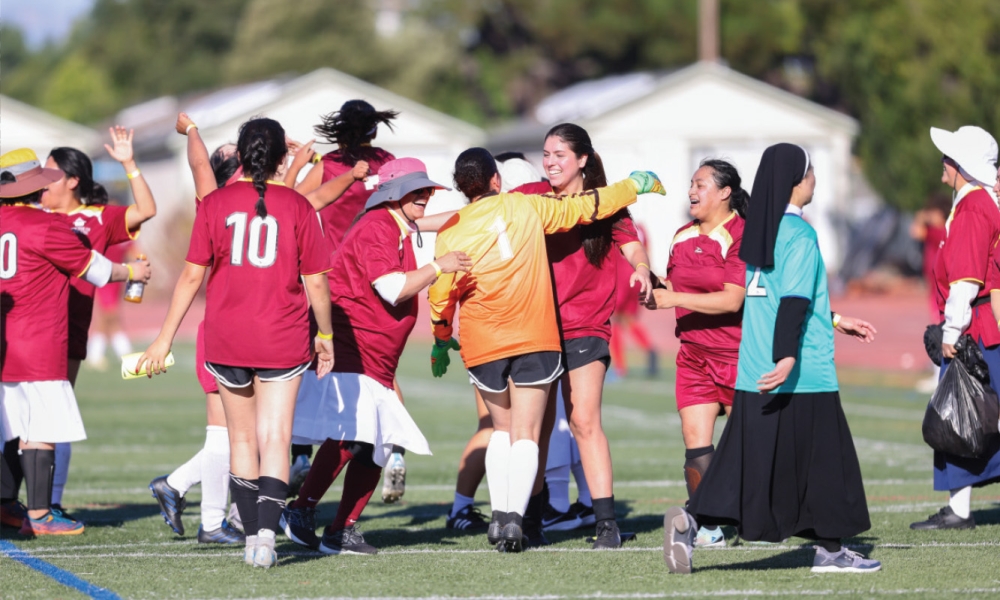
Bishop’s Letter - Late Summer 2024
To the Diocesan Family of San José,
When my parents moved from Illinois to Houston in the early 1960s, after the birth of their first two children in Chicago, the two native Mexicans sought more than milder winters – they longed to be closer to their family in Monterrey, Mexico.
To the Diocesan Family of San José,
When my parents moved from Illinois to Houston in the early 1960s, after the birth of their first two children in Chicago, the two native Mexicans sought more than milder winters – they longed to be closer to their family in Monterrey, Mexico.
While the drive from Texas to northern Mexico was easier than from Illinois, those visits were still rare. My parents had to forge new bonds of support in Houston in order to make life manageable as they raised eight children in a country not their own. Thankfully, they found this support at their local parish, forming strong, lifelong friendships with other families with similar backgrounds, stories, culture, and values. To this day, my siblings and I still refer to these lifelong friends as our “cousins.” While we did not share blood, we shared values, experiences, graces from God, and a common faith. The parish had become our extended family.
Based in part on this personal experience, I believe the parish can become an “extended family.” Pope Saint. John Paul II described the parish as a family of families. The South Bay is home to many families with roots in other countries. Some have extended family nearby, but many do not. Even for those with family nearby, deep friendships are vital to feeling supported in one’s faith, values, and efforts in raising a family in our complicated world.
When Jesus was told his family was looking for him, he responded with a shocking but profound teaching: “‘Who is my mother? Who are my brothers?’ And stretching out his hand toward his disciples, he said, ‘Here are my mother and my brothers. For whoever does the will of my heavenly Father is my brother, and sister, and mother.’” (Mt 12, 48-50, NABRE) Jesus was not disparaging his mother or cousins. Instead, he was emphasizing the spiritual bonds of faith and the importance of becoming one body in Christ. As Saint Paul says, “ Now you are Christ’s body, and individually parts of it.” (1 Cor. 12:27 NABRE) Indeed, the early Christians referred to each other as brothers and sisters. As baptized Christians, we are supernaturally bound to each other by being members of the Body of Christ. This bond is present in our tangible, natural friendships. Pope Francis noted that “[healthy] family relationships represent a unique source of enrichment, not only for spouses and children but for the entire ecclesial and civil community.”1
How can our parishes become a family of families? Often, it is through working toward common goals or events, such as parish festivals or picnics, volunteering with scouts or youth groups, or joining a Catholic movement. These shared experiences bring us closer. They inspire and motivate us to form deeper connections where we can learn from and support each other. My parents, for instance, joined the Catholic Christian Family Movement (CCFM), where they learned essential communication and parenting skills needed in family life alongside other Catholic couples, many of whom became our “aunts” and “uncles.”
With this in mind, may we not only worship together in our parishes, but let us also strive to form strong, supportive families of families within each of our parish communities. Let us be reassured that we are not alone in this journey. As a support system, may our parish communities always be there for us, providing the strength and comfort our families need.
Bishop Oscar Cantú
1 Message of the His Holiness Pope Francis for the Launch of the Family Global Compact. May 13, 2023


